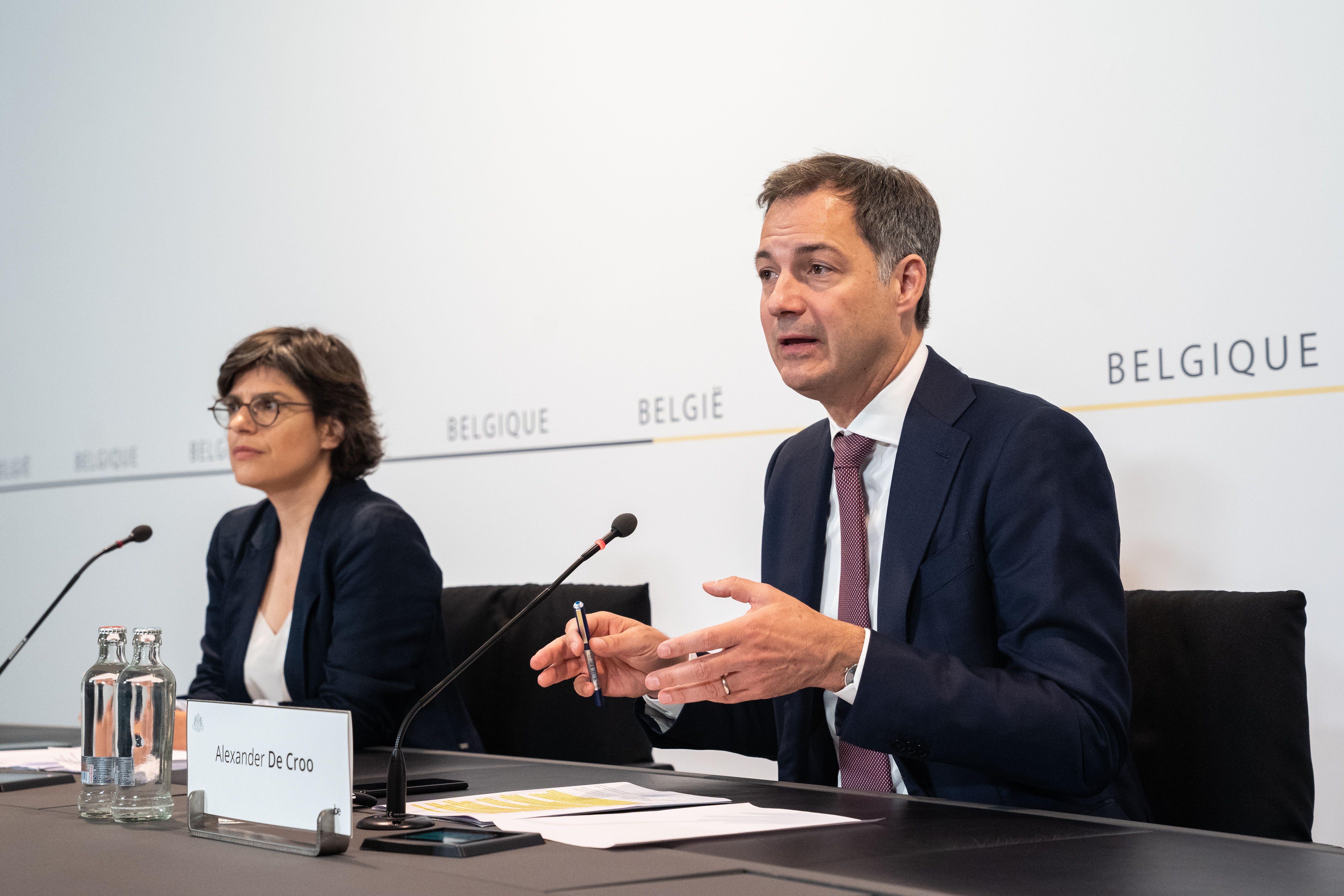Engie and government agree on life extension of nuclear reactors

The Belgian government and French energy supplier Engie - the operator of Belgium's nuclear power plants - have reached an agreement on an extension of the Tihange 3 and Doel 4 reactors. The deal "strengthens our electricity supply, reduces our country's energy dependence and guarantees the production of carbon-free, affordable electricity in Belgium," prime minister Alexander De Croo said.
The two sides announced on Thursday an "interim" agreement on the modalities for the 10-year lifetime extension of Doel 4 and Tihange 3. The agreement "aims at balancing the risks between the two parties and removing the uncertainties surrounding nuclear waste processing".
Engie and the federal government are making every effort to restart the country's two youngest reactors, referring to a "preferred scenario" of November 2025, provided the regulations are changed as announced. That should ensure security of supply through the winter of 2025-2026. In the other scenario, it will be November 2026. A legal structure will be set up for the extension of the two reactors, of which the Belgian state and Engie will become joint owners.
Nuclear waste disposal
A lump sum has also been set for the future costs related to the disposal and processing of nuclear waste from all Engie's nuclear facilities in Belgium, amounting to a total of 15 billion euros. This sum is in addition to the funds already earmarked for decommissioning the nuclear plants. "The Engie group's total nuclear liabilities towards Belgium amount to at least 23 billion euros," the two parties reported in a press release.
"This agreement is good for all Belgians: it provides certainty about the cost of nuclear waste and our country's energy supply"
"This agreement is important for the security of supply of our families and businesses," De Croo said after the agreement was announced on Thursday. "It strengthens our electricity supply, reduces our country's energy dependence and guarantees the production of carbon-free, affordable electricity in Belgium."
"This agreement is good for all Belgians: it provides certainty about the cost of nuclear waste and our country's energy supply. It also ensures the financing of nuclear waste management for all future generations," Energy minister Tinne van der Straeten added. "The war in Ukraine has profoundly changed the European energy landscape. It is more urgent than ever to reduce our dependence on fossil fuels and take energy back into our own hands."
Permanent closure overturned
For a long time, Belgium seemed headed for a permanent closure of all its nuclear power plants by 2025. The war in Ukraine and the steep rise in energy prices caused van der Straeten's Groen party to abandon its resistance. In March last year, the federal government concluded a decision in principle to keep the youngest nuclear plants, Doel 4 and Tihange 3, open for 10 more years. A first concrete deal with the company followed in January this year, stipulating that Engie would make every effort to keep both plants running by the winter of 2026-27.
The initial agreement was necessary to immediately start several studies. It confirmed the creation of a company in which the Belgian state and Engie would each participate in half of the continued operation of the nuclear plants. The deal, at the time, did not yet include concrete sums, how to divide the costs, or possible support mechanisms.
(BRV)
Energy minister Tinne Van der Straeten and prime minister Alexander De Croo © BELGA PHOTO JULIETTE BRUYNSEELS / Thierry Saegeman, CEO of Engie Electrabel © BELGA VIDEO MAARTEN WEYNANTS
Related news



